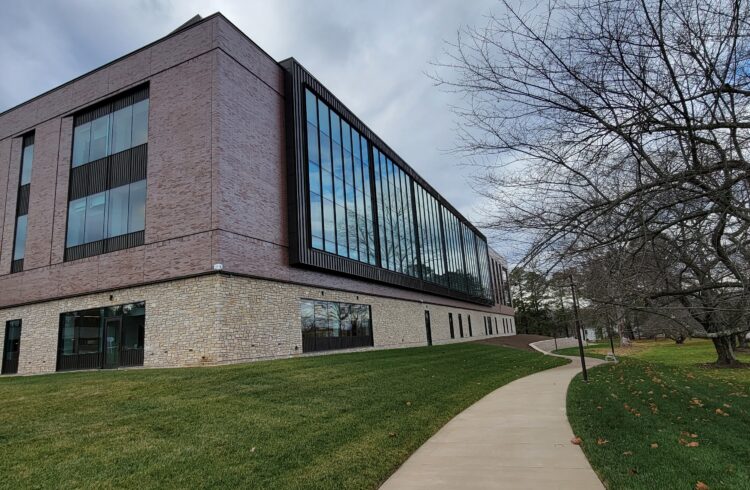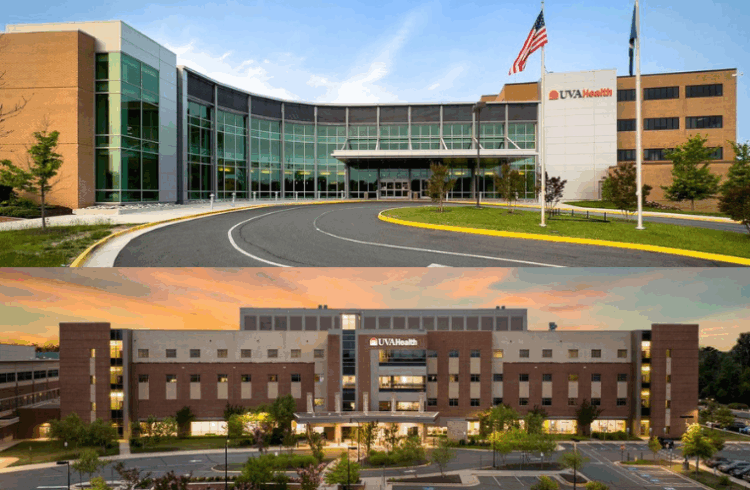
School of Medicine researcher Ukpong Eyo, PhD, is exploring the role of immune cells called microglia in the brain and in neurological diseases such as Alzheimer's.
New School of Medicine research has revealed how and why ailing immune cells called microglia may be contributing to Alzheimer’s disease, multiple sclerosis and other neurological disorders. The findings could open the door to new approaches to treating those conditions.
Researchers led by UVA Health’s Ukpong Eyo, PhD, found that microglia are put under tremendous stress and become prone to dying when they lose a particular cellular protein. The loss of this protein, the researchers believe, may be a linchpin for the microglia’s transformation from brain defenders to a source of damaging inflammation.
“These immune cells make less of this protein in various diseases of the brain, and we were intrigued to find out that when we got rid to the gene that makes this protein and exposed mice to inflammation, these brain immune cells showed increased signs of vulnerability to a certain type of iron-influenced cell death,” said Eyo, of UVA’s Department of Neuroscience, the UVA Brain Institute and the UVA Center for Brain Immunology and Glia (BIG Center). “We are now beginning to determine whether this also happens in the context of various diseases, beginning with Alzheimer’s disease, where the protein is reduced.”
Microglia’s Role in Alzheimer's
Microglia are the brain’s resident housecleaners. They scour the central nervous system removing debris, dead cells, damaged nerve cells and other unnecessary or harmful materials. But the microglia can lose their way in neurological diseases. In Alzheimer’s, for example, they are unable to remove the harmful plaques associated with the disease and instead build up around the plaques, driving harmful inflammation.
Researchers had noted that many ailing microglia lack a particular cellular protein, P2RY12, and Eyo and his team wanted to understand the effects this could have. They found that the loss of this protein had dramatic effects on the cells’ ability to manage iron, which is vital for the proper functioning of neurons and other cells.
The loss of the protein put the microglia at risk for “ferroptosis,” a recently discovered form of cell death driven by iron. These ailing microglia become unable to do their jobs properly and can become harmful when stressed further by the need to respond to infections or other problems in the brain, the UVA research team concluded.
“We found that without this protein, microglia are much more stressed than usual,” said Aida Lopez-Ortiz, a graduate student who carried out the study. “When this protein is gone, Microglia rev up their energy use and lose some of their natural defenses against damage. This combination makes them fragile, and under pressure they can tip from being protective cells into cells that actually harm the brain.”
Further research into the protein, the scientists say, could help us better understand neurological diseases and lead to new ways to help microglia do their jobs and to prevent harmful brain inflammation.
“These are interesting results but were done in a simple model of inflammation and not a specific disease context. It tells us what is possible but not what is actually occurring in disease,” Eyo said. “We are now exploring the extent to which these findings occurs in disease and therefore may provide a specific avenue to use drugs to target the process that could improve microglial function.”
Findings Published
The UVA scientists have published their findings in the scientific journal Glia. The research team consisted of Lopez-Ortiz, Madison Doceti, JaQuinta Thomas, Abigayle Duffy, Morgan Coburn, Akhabue K. Okojie, Audrey Lee, Elizabeth Aidita Sou, Alban Gaultier and Eyo. None of the scientists has a financial interest in the work.
The research was supported by the National Institutes of Health, grants NS119243 and NS122782; the Owens Family Foundation; and an iPRIME Fellowship.
To keep up with the latest medical research news from UVA, subscribe to the Making of Medicine blog.



